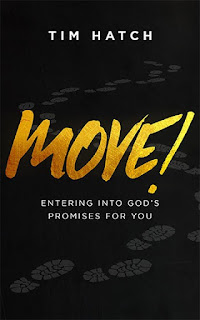Worship Reminds Us We're Different
Worship has always been a hallmark of the people of God. And when the exiles return from Babylon, the first order of business was not to settle in homes or establish their businesses. The first order of business was to establish a structure for worship.
Ezra 3:1–3 (ESV) When the seventh month came, and the children of Israel were in the towns, the people gathered as one man to Jerusalem. 2 Then arose Jeshua the son of Jozadak, with his fellow priests, and Zerubbabel the son of Shealtiel with his kinsmen, and they built the altar of the God of Israel, to offer burnt offerings on it, as it is written in the Law of Moses the man of God. 3 They set the altar in its place, for fear was on them because of the peoples of the lands, and they offered burnt offerings on it to the LORD, burnt offerings morning and evening.
When Israel worships, they separate themselves from the world around them and become the light to the nations. Notice the statement made in verse three concerning their establishment of the altar "in its place." For what reason? The text says, "for fear was on them because of the peoples of the lands." They knew that worship was the way to draw a clear line of distinction between them and the foreign influence surrounding them.
Worship was also continual. The worship happened "morning and evening" as was directed in the law. For Israel, worship of God was to be an every moment experience in which they set Him first in their lives.
The text continues:
Ezra 3:4–5 (ESV) And they kept the Feast of Booths, as it is written, and offered the daily burnt offerings by number according to the rule, as each day required, 5 and after that the regular burnt offerings, the offerings at the new moon and at all the appointed feasts of the LORD, and the offerings of everyone who made a freewill offering to the LORD.
The Feast of Booths would have taken place around September-October as Israel celebrated both their new year and their harvest. It also followed 5 days after the day of Atonement. Israel had returned to the land just in time to celebrate their sins forgiven (Atonement), the blessing of God (harvest), and their lives as wanderers through the wilderness with God (booths).
It is that last part concerning the "feast of booths" that I find especially important here. In Leviticus, we are given the reason for this particular feast. It was for Israel an annual reminder that they had no dwelling when God brought them out of Egypt at first. They wandered with God in tents. And He was with them.
Leviticus 23:42–43 (ESV) You shall dwell in booths for seven days. All native Israelites shall dwell in booths, 43 that your generations may know that I made the people of Israel dwell in booths when I brought them out of the land of Egypt: I am the LORD your God.”
In this annual worship festival, Israel was made to remember that the presence of God was enough no matter where they were. That He was always with them and that they would know Him intimately, as no other nation would.
This is perhaps the best and most glorious facet of worship. It reminds us that God is all we need. When we worship, we lift Him up above our problems and cares, we remind ourselves that He is always with us and that Jesus Christ has brought us OUT of this world and is preparing for us a dwelling in the heavenly city forever. When we worship we learn again that we are not home, but we dwell in Him and with Him in the midst of this very strange world.
Hey readers! My book is out! I believe it will give you the tools you need to get moving in the right direction. Don't let worry, fear, and comparison call the shots in your life, Get a copy and get MOVING WITH GOD!

Comments
Post a Comment